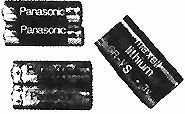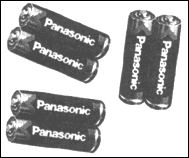题目内容
We are lucky to be among the generation of people who have ________ and experienced the great social changes in our country.
A. reported B. appreciated C. impressed D. witnessed
D
witnessed目击,亲眼看见,故该题的正确答案为D。

 天天练口算系列答案
天天练口算系列答案
| |||||||||||||||||||||||||||||||||||||||||||||||||||||||||||
A Battery’s Worst Nightmare(噩梦)
Portable electronics that can be carried about easily are only as good as their batteries and, let’s face it, batteries aren’t very good, especially when compared with, say, petrol, which packs 100 times a battery’s energy into an equal space. That’s why a large group of mechanical engineers (centered at the Massachusetts Institute of Technology, but with partners at other universities and companies) are hard at work in an effort to replace batteries with a tiny engine that runs on fuel. Imagine a battery-free life!When the fuel runs out in your laptop or mobile phone, you just fill up and go.
up and go.
The engine, about the size of a ten-cent coin, starts with a combustion chamber (燃烧室) that burns hydrogen (氢). Its tiny parts are etched onto silicon wafers (硅片) in the same manner that computer parts are imprinted onto integrated circuits (集成电路). The first engine is made up of five wafers. And since these wafers could be produced in much the same way as computer chips, they could probably be produced quite cheaply.
But the devil in all this nice detail is efficiency(效率). Tiny engine parts don’t always behave like their scaled-up parts of the first engine. Something between the parts can slow down th e work, according to Columbia University professor Luc Frechette, one of the engine’s designers. Extreme heat from the combustion chamber is also a problem, often leaking to other parts of the engine.
e work, according to Columbia University professor Luc Frechette, one of the engine’s designers. Extreme heat from the combustion chamber is also a problem, often leaking to other parts of the engine.
The scientists’ goal is to create an engine that will operate 10 times better than batteries do. Frechette says that a complete system, with all parts in place and working, will be set up in the next couple of years, but commercial models aren’t available until at least the end of the next ten years.
will operate 10 times better than batteries do. Frechette says that a complete system, with all parts in place and working, will be set up in the next couple of years, but commercial models aren’t available until at least the end of the next ten years.
【小题1】.
. According to the passage, the title suggests that ________.
| A.batteries should be greatly improved | B.petrol will be used instead of batteries |
| C.the time of batteries will be gone forever | D.pollution caused by batteries must be prevented |
What’s the meaning of the underlined word “devil” (In Paragraph 3)?
| A.Problem. | B.Advantage. | C.Invention. | D.Technique. |
What can we infer from the passage?
| A.The new invention doesn’t need any fuel. |
| B.The new engine has been produced in quantity. |
| C.The new invention is much cheaper than the battery. |
| D.The new engine needs to be improved before it’s on sale. |
. What is the main purpose of this passage?
| A.To introduce a new invention to readers. | B.To persuade readers not to use batteries. |
| C.To show us how the new invention works. | D.To declare when the engine will be on sale. |


